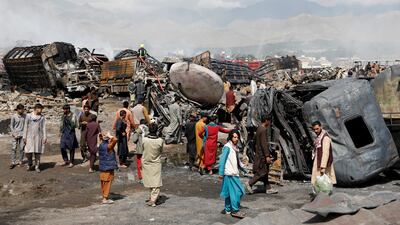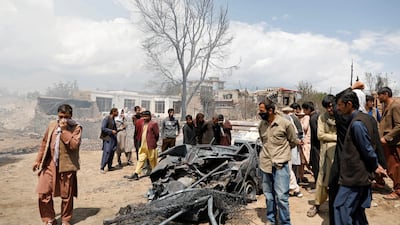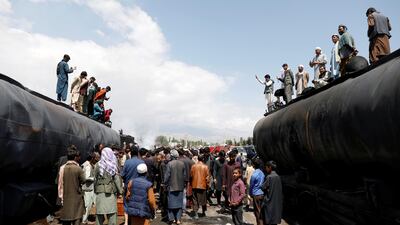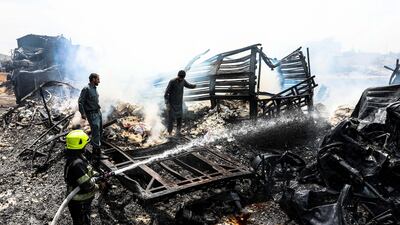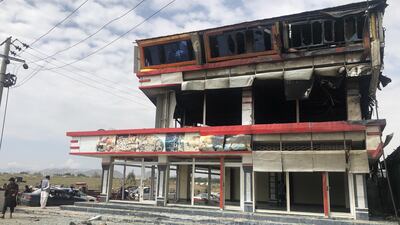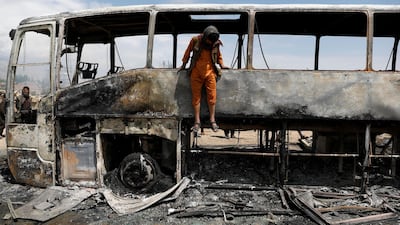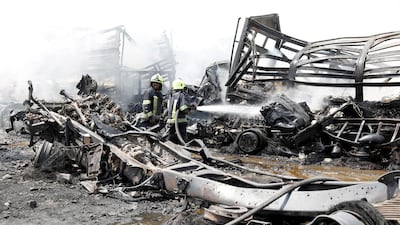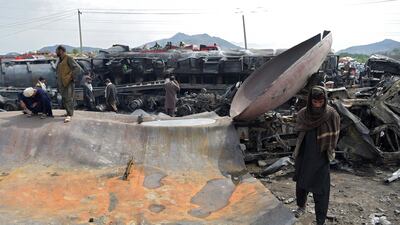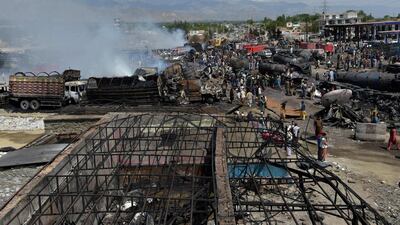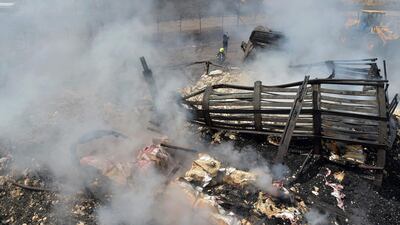At least seven people died and 14 were injured in a massive fire on the outskirts of Kabul triggered by exploding fuel tankers at the weekend, Afghan officials said.
Afghanistan's capital was plunged into darkness, except for the towering orange flames that were visible for miles across the city.
Sunday's blaze at the northern gate to Kabul is thought to have started as fuel tankers and goods trucks waited to be permitted entry to the city.
Firefighters battled the flames for nearly 12 hours before the fire was brought under control.
"The fire started at around 9pm last night and a major fire control operation was conducted until 2am, but it was close to morning when the fire was fully shut down," Interior Ministry spokesman Tariq Arian told The National.
People living in a nearby village heard a series of explosions before the flames reached their homes.
"We heard a big blast at around 8.30pm and, from then onward, we kept hearing consecutive blasts getting closer. By 9pm, the fire had reached our village," Mohammad Arif, a 34-year-old farmer from Kabul's Shakardara district told The National.
“Many of my relatives are severely injured. My daughter is also recovering from minor burns, but with so many serious injuries in our village, I haven’t even had the chance to go check on her,” he said, walking amid the ruins of his home and farms.
“We lost pretty much everything. We don’t even have a place to sleep tonight. I don’t know where to go.”
Vital local infrastructure, including power lines running into the city, were damaged in the blaze.
"Two major power lines in Qala-e-Murad Beg that bring imported electricity into Kabul were damaged as a result of the fires in the fuel tankers last night," Wahid Tawhidi, chief media director of state utility Da Afghanistan Breshna Sherkat, told The National.
“Our technical staff have worked relentlessly all night to fix the power lines and re-establish electricity supply to the affected provinces.”
Although the full extent of the damage has yet to be assessed, witnesses claim that up to 100 fuel trucks may have been caught fire.
“Last night I saw the bodies of more than 10 tanker drivers, but the government is insisting that the total death toll is far less. They’re lying. If we want exact figures, I will take you to the bodies,” said Mr Arif, the farmer.
“This is not the first such incident, and they never learn,” he said, referring to two similar fuel tanker explosions earlier this year.
Large fires broke out at the Islam Qala border crossing in western Afghanistan in February and at a fuel depot in Farah province in April.
The Afghan government said neither of the incidents were caused by terrorist attacks or sabotage, and local people are questioning its ability to manage crucial infrastructure safely.
“Who is holding them accountable for all these repeated fires, the damage and destruction?” Mr Arif said.
“They haven’t even offered us any support or help. At the end of the day, poor people like us have to pay the price for the government's mistakes and inefficiency.”
